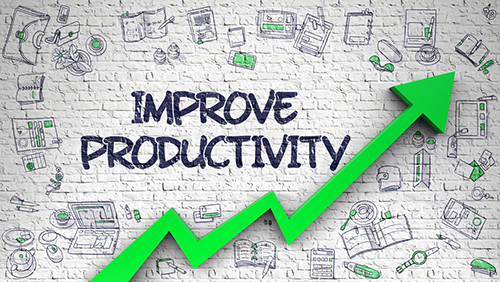Do you ever feel like there’s not enough time in a day? Or make it to the end of a work day, only to realize you haven’t completed half of the tasks you intended?
Today, Principals Kevin Bahner, PE, and Matt Schachle, PE, SE, share some productivity techniques that they’ve honed over the courses of their careers. Bahner and Schachle know time management: they started out in the fast-paced environment of Wallace’s Walmart Expansion and Takeover team, performing site investigations, producing structural calculations and drawings and providing construction administration services for multiple sites across the US simultaneously. Now as principals, they routinely manage 10-20 projects at once.
Read on for their top five tips on how to make the most of your time:
1. Delegate
Typically, as careers progress, so do responsibilities, tasks, and the sheer volume of information.
“A lot of my job is just organizing data and finding the time that I can do it or assign it to other employees,” explains Bahner.
Schachle adds that just because you’re given a task or project doesn’t necessarily mean you have to squeeze it into your schedule.
“There may be someone available who has time and is more proficient.”
Keeping tabs on your co-workers’ capabilities and schedules and parceling out work as appropriate can not only help you manage your time, but also help your company’s bottom line by keeping employees utilized.
2. Maximize technology
Most of us don’t even scratch the surface of the technological capabilities at our fingertips. With more people working from home or in different locations, there has never been a better time to explore apps designed to streamline scheduling and communication. Consider replacing tedious, time-consuming email strings between team members with a quick screen share or a collaborative, real time document, such as a Google Doc or Bluebeam Studio session. Take the time to explore the programs and features available to you through your company.
Also, engineering software programs can be huge time savers. Schachle notes that once you have mastered the crucial principles and long hand calcs for certain engineering concepts, identifying and implementing the best-fit software program for a given project (along with performing the appropriate, quick hand checks) is the most efficient path forward. While it may take some time to learn a new program and become proficient, the benefits, including professional development and long term efficiency, far outweigh the initial time investment.
3. Minimize distractions
Although technology can boost productivity, it can just as easily inhibit it. According to a study by RescueTime, the average office employee checks their email or IM every 6 minutes.1
Bahner suggests designating a few specific times per day for checking emails. Put out the fires and prioritize the rest so you can keep plugging away on your tasks at hand, rather than constantly expending mental energy hopping between tasks and emails.
Bahner notes another way to minimize distractions is to reorganize your schedule to get some uninterrupted hours outside the typical 8-5 workday. Coming into the office a few hours early or staying a few hours late could give you the uninterrupted time you need to knock out tasks without emails, phone calls or a noisy office.
4. Ask questions
One of the biggest hindrances to productivity and development may be your own insecurities. You might be hesitant to dive into a new software program or remain ignorant to an important skill because you fear being judged if you ask for help.
Whether it’s a technical, personal or IT skill, Schachle recommends finding out who the experts are in your company and learning from them. Asking questions and trying new things shows initiative and a willingness to improve. Save yourself the frustrating Google search and slow self-teaching and ask for a quick tutorial from your coworker.
5. Take breaks
While taking a break might seem counterintuitive to increasing productivity, going for a walk or chatting with a co-worker can give your brain a much needed break.
“Don’t be afraid to do things like that to help your demeanor and help your productivity,” says Schachle.
Moving around can reduce stress and increase oxygen to the brain. Additionally, fostering social ties in the workplace can boost your mood and promote an atmosphere of community and teamwork. However, he also emphasizes that you need to be honest on your timesheet. Several small breaks can add up to a half hour or more. Ensure you are making up that time.
Hopefully, you have found some ideas you can implement into your daily routine. However, the most important takeaway is to never be stagnant; always strive to improve your personal and professional skills, which includes productivity. Schachle acknowledges that trying new things might seem inefficient at first, but be sure to devote some true effort and time before judging results.
“As you start to do things differently, it’s easy to get frustrated and think it’s not more efficient, but if you give it a chance for three, four, or five days in a row, you might find it is. Give it a try.”



Thanks for the about how engineers should be asking questions. I want my house to look perfect. I’ll be sure that I get asked a ton of questions.